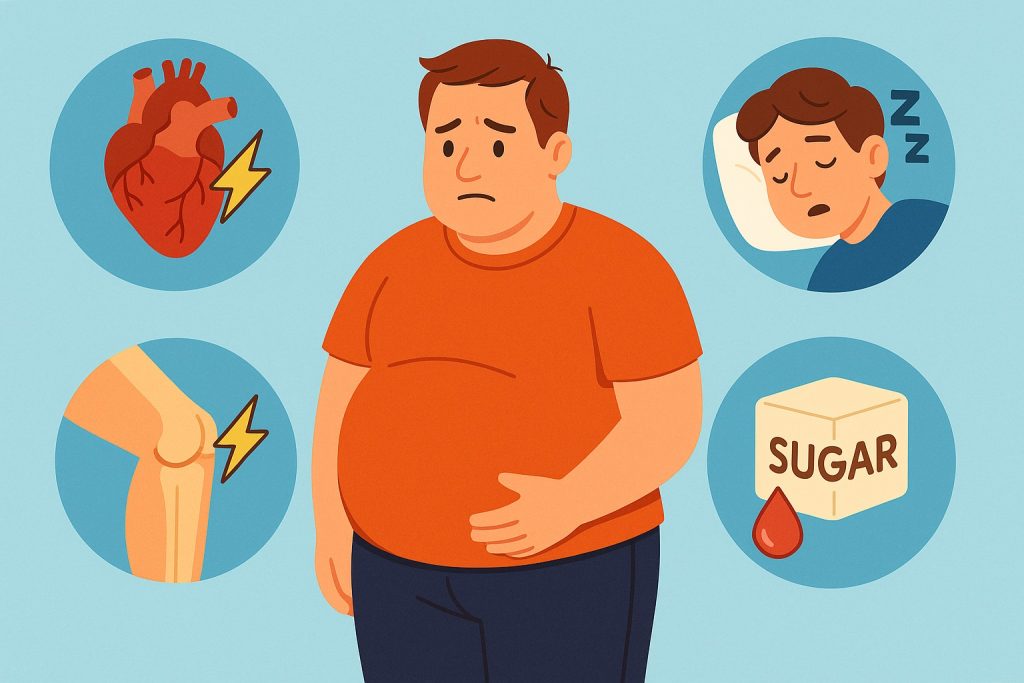Excess weight, especially when it reaches the level of obesity, is more than a cosmetic concern—it is a significant health issue that affects nearly every system in the body. Carrying too much body fat increases the risk of chronic diseases, reduces mobility, and can shorten life expectancy. Understanding the consequences of excess weight helps highlight the importance of healthy lifestyle choices and preventive care.
Impact on the Cardiovascular System
Excess weight places a heavy burden on the heart and blood vessels. It often leads to high blood pressure, increased cholesterol levels, and a greater risk of atherosclerosis (hardening of the arteries). Over time, these factors significantly raise the chances of heart attack, stroke, and other cardiovascular diseases.
Effects on Metabolism and Hormones
Excess body fat disrupts the body’s metabolic processes. It reduces insulin sensitivity, making it harder for cells to absorb glucose from the blood, which can lead to type 2 diabetes. Hormonal imbalances caused by obesity also contribute to increased appetite, difficulty losing weight, and reproductive health issues.
Strain on Joints and Bones
Carrying excess weight puts additional stress on bones, joints, and muscles. This is especially harmful to the knees, hips, and spine, often leading to osteoarthritis and chronic back pain. Reduced mobility caused by joint pain can further decrease physical activity, creating a cycle that worsens weight problems.
Respiratory and Sleep Issues
Obesity is closely linked to breathing difficulties, including sleep apnea, a condition where breathing repeatedly stops during sleep. Excess fat around the chest and abdomen limits lung expansion, reducing oxygen intake and causing fatigue during the day. This lowers overall energy and decreases quality of life.
Increased Risk of Certain Cancers
Research shows that excess weight is associated with higher risks of several types of cancer, including breast, colon, and liver cancer. Chronic inflammation, hormonal changes, and metabolic stress contribute to this increased vulnerability.
Mental and Emotional Health
Beyond physical health, excess weight often affects mental well-being. People may experience low self-esteem, depression, and social stigma. Emotional stress can lead to overeating or avoidance of physical activity, deepening health challenges.
Conclusion
Excess weight has serious consequences for nearly every aspect of human health—from the heart and metabolism to bones, breathing, and mental well-being. While the risks are significant, they can often be reduced through lifestyle changes such as balanced nutrition, regular exercise, and quality sleep. Seeking medical advice and support can also help individuals achieve long-term health improvements.
Glossary
- Obesity – a condition characterized by excessive body fat that increases health risks.
- Insulin sensitivity – how effectively the body responds to insulin in controlling blood sugar levels.
- Atherosclerosis – the buildup of fatty deposits in arteries, leading to reduced blood flow.
- Sleep apnea – a sleep disorder where breathing stops and starts repeatedly.
- Osteoarthritis – a joint condition caused by the breakdown of cartilage, often worsened by excess weight.


